Cork convoy diary: Refugees fear for their children at makeshift camp
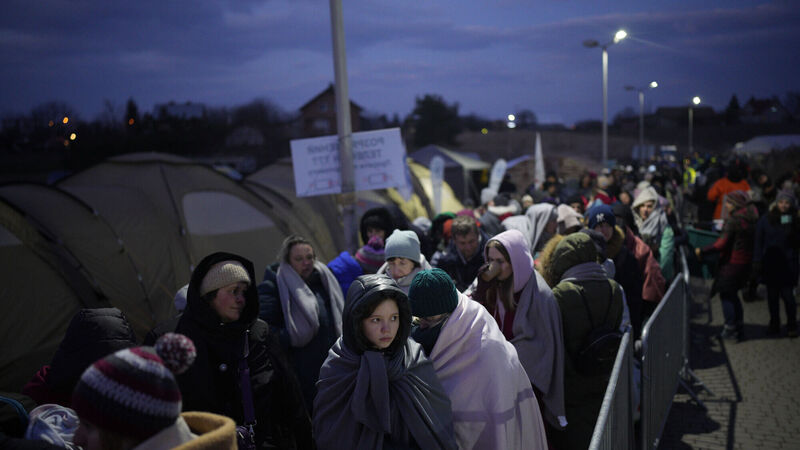
Refugees fleeing war in neighboring Ukraine queue at the Medyka border crossing in Poland. The Cork Humanitarian Aid Ireland convoy was due to deliver six tonnes of medical supplies, babies’ clothing and baby food to a Ukrainian cardiologist. (AP Photo/Daniel Cole)
Some refugees in a humanitarian aid centre near the Polish-Ukrainian border are in fear that their children may be snatched by paedophiles, and most feel Ireland is too far to travel for asylum, a Ukrainian aid worker has told The Echo on Saturday.
In Przemyśl, a city in south-eastern Poland with a population of 60,500, a makeshift refugee camp and processing centre has sprung up around a former shopping centre as thousands of people arrive every day from the nearby Medyka border crossing.
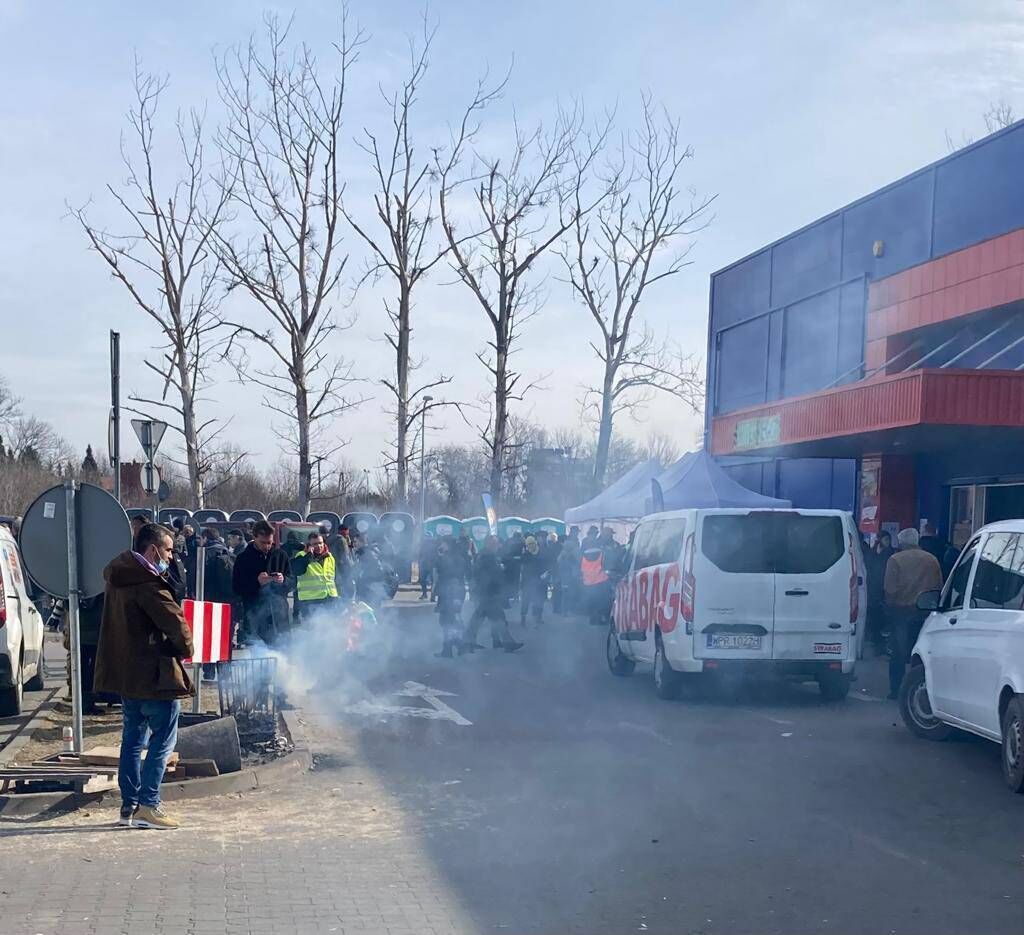
On Saturday morning, members of the Cork Humanitarian Aid Ireland convoy, which left Ireland on Tuesday, arrived at Przemyśl in the hope of securing assistance to deliver six tonnes of humanitarian aid across the border to a Ukrainian doctor.
The Cork group, which is made up of six volunteers from Cork City Missing Persons Search and Recovery (CCMPSAR) and four from Cork Penny Dinners, was on Friday night turned back from the neutral zone between the two countries.
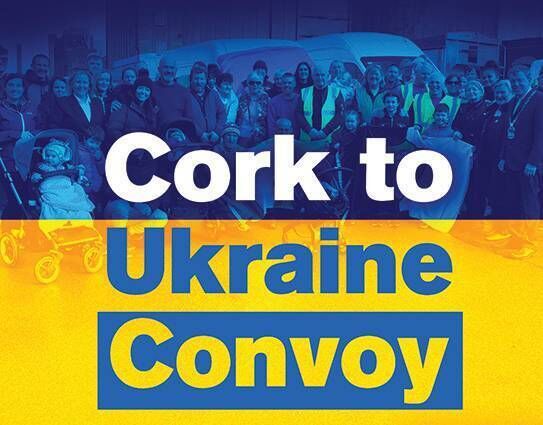
The group had hoped to deliver medical supplies and baby clothes to Dr Anastasia Koloka, a cardiologist who had made the hazardous journey from the Ukrainian capital Kyiv, which is currently besieged by invading Russian troops.
Foreign humanitarian aid had been allowed into the neutral zone until now, but locals say Polish officials have doubled security as Vladimir Putin has intensified shelling of Ukrainian cities and towns, and Polish cities are struggling to accommodate the refugees flooding across the border.
At the Przemyśl centre, dozens of buses full of refugees queue to leave, their European city destinations advertised on their windscreens, beside the blue and yellow flag of Ukraine now recognised the world over. The buses are full of women and children, and the only males in sight are Polish soldiers and police, aid workers and young boys and older men.
Outside the centre, Ruslan, a Ukrainian aid worker who lives on the Polish border with Germany, told The Echo he had travelled to Przemyśl to help his fellow Ukrainians, and he was dealing every day with mothers who are terrified that paedophiles will come to the camp and steal their children.
“There are a lot of police here, and they watch everyone, and if you want to talk to families and to children you must be registered and have papers, but people are very scared because they have lost everything and they worry about [losing their children] too,” he said.
When told that Ireland has opened its borders to Ukrainian refugees, Ruslan said this was a very kind gesture, but he felt that, unless refugees had relatives in Ireland, they would be reluctant to travel.
They are hoping they will be able to go home soon, if the war ends, and they want to be ready to go in quick time,” he said.
Inside the processing centre on Saturday morning, hundreds of people were queuing to register with the Polish authorities, and the experience of the noise and the sheer number of people moving around was daunting.
Daria, a Russian volunteer workingin the centre, agreed with Ruslan’s comments, saying most Ukrainian refugees want to stay near the border.
“They will stay in Poland, maybe Germany, Czech Republic, but Ireland is too far, because they hope to return home soon.”
She said most of the people she has met have tended to be focused on their plight, and have not been emotional.
“Refugees are very busy with their quest to go out from this place, and a lot of them have no time to be sad,” she said.
Gabriel Pileri, an Italian journalist working with Reuters, said he had been at Przemyśl for two days, and he had met a young woman from the east of Ukraine who said she had lost everything and had fallen out with her own mother over Putin’s propaganda.
“She travelled for two weeks and she said she had no food, nothing, and she became very emotional when she met us,” he said.
“It is incredible to me that this woman would believe a man like Putin over their own daughter, but the young woman said many Ukrainian people living in Russia have swallowed his fake news,” Mr Pileri said.
It was minus six on the Ukrainian border at Medyka on Friday night, and cars were at a stand-still in the two-mile queue, with refugees walking the road in jeans and jumpers.
The Cork Humanitarian Aid Ireland convoy, guided by local pastor Jan Skarbek, was due to deliver six tonnes of medical supplies, babies’ clothing and baby food to a Ukrainian cardiologist in the neutral zone between Poland and Ukraine.
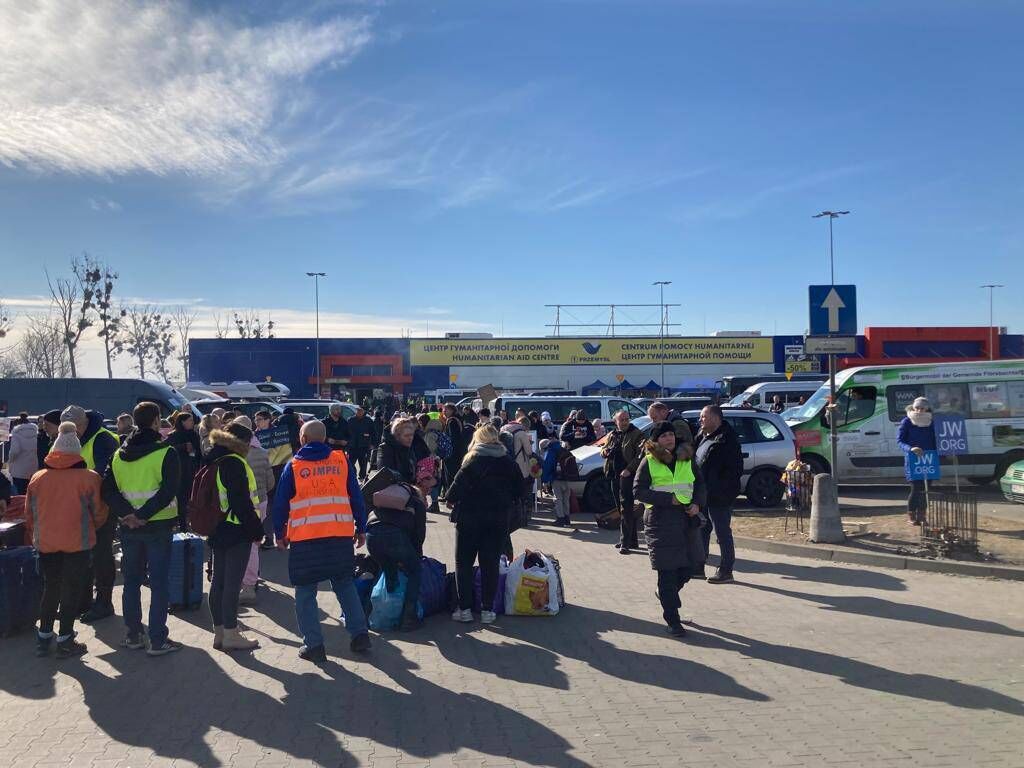
We could see Polish cars being waved through into the neutral zone, and we knew from our conversation yesterday with London student Jonah Lowenstein and his dad Paul, who had brought a van of humanitarian aid to the neutral zone on Thursday, that foreign aid had been allowed through only a day before.
It had all seemed a done deal last night, and Jan’s local sources had said we could expect to be waved through. Dr Anastasia Koloka, who had made the hazardous journey from Kyiv, had told us on the phone how delighted she was, and how the aid the convoy had brought would save many lives in a city besieged by Vladimir Putin’s forces.
When we spoke to Polish border officials, though, they were unwilling to let us through to the neutral zone. We could go through the border into Ukraine itself, they said, and deliver our aid there, but they said they couldn’t tell us when, or if, we would be let back over the border into Poland and the European Union.
Cork Humanitarian Aid Ireland is made up of volunteers from two Cork charities, four from Cork Penny Dinners and six from Cork City Missing Persons Search and Recovery (CCMPSAR), all travelling on this convoy in a personal capacity.
At the border, Catriona Twomey, Penny Dinners co-ordinator, and Chris O’Donovan, CCMPSAR treasurer, with Tomas Kalinauskas from Penny Dinners and Pastor Jan translating, tried to negotiate with the border officials.
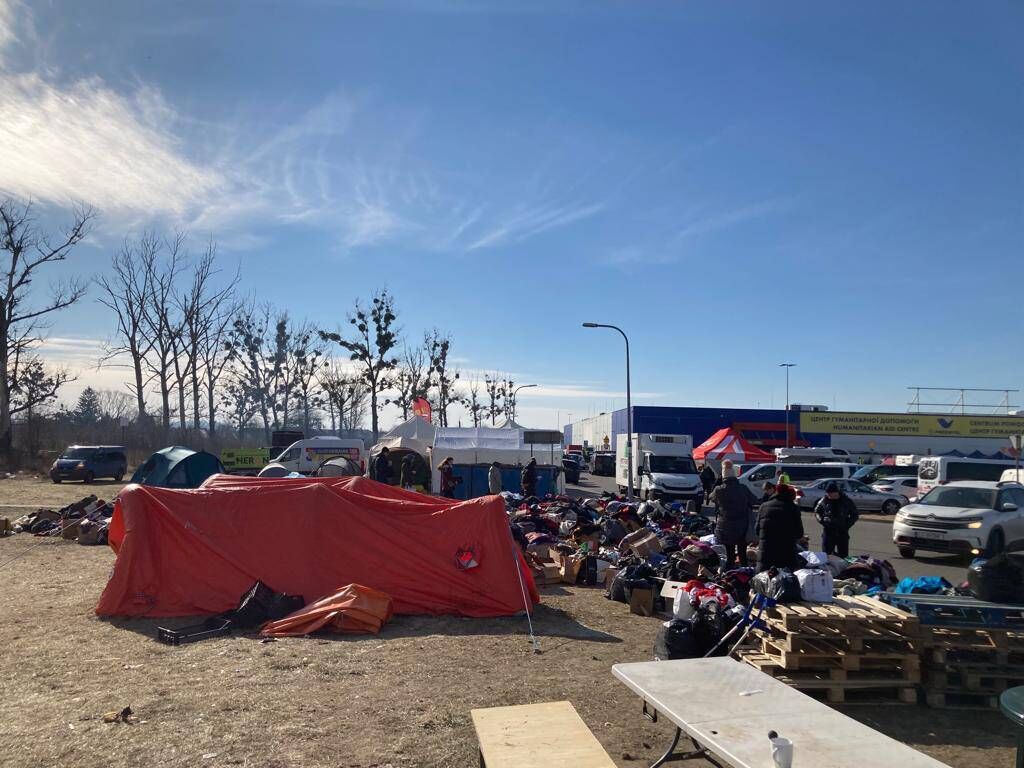
On the phone, Anastasia Voloka became increasingly distressed, begging the officials to let the delivery through, as lives literally depended on it in Kyiv.
In the end, though, no amount of pleading would sway the impassive Polish officials. It was go to Ukraine, or go home. With a further eight tonnes of aid waiting back in Tarnów to be delivered to Redemptorist contacts in Leżajsk, an indefinite stay in a warzone didn’t seem feasible.
Local sources told us security had been doubled at border crossings over the past 24 hours, and volunteers and officials in Tarnów told us the larger Polish cities are overwhelmed with refugees.
Caitriona Twomey spoke for everyone when she said there was little choice but to turn back, saying she felt heartbroken for Anastasia.
In the supermarket by the Medyka crossing as we left, parents and children sat on the floor, dead-eyed and lost.
The mood was sombre on the two-hour journey back to Tarnów. After four hours’ sleep, volunteers are en route again to border country, to attempt to get the delivery to Anastasia by some other route.
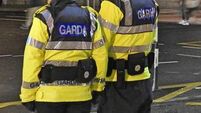


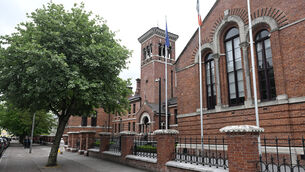



 App?
App?


